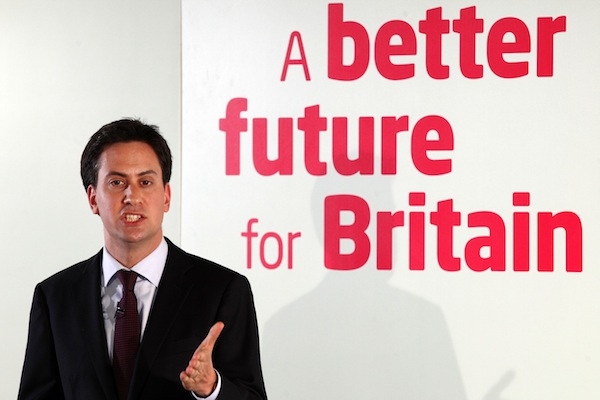David Cameron, it has been argued this week, has become detached from the views of Conservative voters on Europe. Amid the noise on the EU referendum, however, comes more evidence that it is Ed Miliband who has the greater problem of detachment from the views of his party’s supporters. While the Labour leader continues to battle on against welfare reform, a report from the Joseph Rowntree Foundation reveals just how far his voters have moved away from the idea of a redistributive welfare system as a force for good.
Miliband’s problem is that he seems to believe he will be facing Mrs Thatcher at the next election. His strategy is built around fighting a Conservative party that is perceived to be harsh on the poor. This was the critique for the late 1980s, when almost half of Labour voters agreed with the notion that people live in need because of social injustice and three quarters wanted benefits to be increased. The reforms Mrs Thatcher made were radical, the disruption huge.
Back then, Miliband’s automatic response to stand up for benefit claimants would have made perfect sense. He would have been tapping into a significant well of feeling that the poor were poor because hard-headed economic reforms had pulled the ground from beneath their feet, and that it was callous to expect the jobless to get on their bikes and look for work outside the industries in which they had been brought up. Such feelings extended well beyond the Labour-voting classes. In 1987 — the year of Thatcher’s third general election victory — two fifths of Conservative voters thought that the government should increase welfare benefits.
The public, however, has become a good deal more hard-headed on the issue of welfare benefits over the past quarter-century, and this is especially true of Labour voters. Now, a quarter of Labour’s support agree that poverty is the result of social injustice, and only a third want welfare benefits to be increased. Remarkably, almost half agree with the notion that if welfare benefits were cut, it would help people to stand on their own two feet. Perhaps most striking of all is Labour voters’ perceptions of the reasons behind child poverty. A third are minded to blame ‘society’ — and a whacking 63 per cent are more inclined to blame the children’s parents.
These views are changing not because of Tory propaganda but because of what people on council estates see with their own eyes. The welfare state is now fostering the very worklessness it was designed to eradicate. Workers on low pay are well aware that their neighbours on welfare do not face similar constraints. In some parts of Britain’s inner-city estates, parents have watched in horror as their children leave school and sign on to welfare as a lifestyle choice. The fault lies not with the teenagers, but the system. This is more than just a waste of money; it is an unforgiveable waste of human potential.
These are not views you will hear much coming from Labour’s middle class, the metropolitan elite. Among the circles in which Ed himself moves, there still exists a patrician socialism, where the poor are seen from a distance and the state takes on, formalises and enhances the role of traditional charitable structures.
Ed Miliband’s fight against welfare reform does make some political sense. It is a policy likely to win over well-heeled Liberal Democrats offended by their party’s dalliance with the Conservative devil. On virtually every measure of their attitude towards the welfare system, Liberal Democrats are now significantly to the left of Labour voters. Miliband’s problem, though, is that he must hold on to his core voters who, as was seen a fortnight ago, are quite capable of leapfrogging to Nigel Farage’s Ukip. An overgenerous benefits system which encourages worklessness is becoming entwined with mass immigration as a cause of dissent among the working class.
In some ways we are going back to the late 1970s, when a large body of those who had been assumed to be natural Labour voters were poised to switch to the right. Now as then, if the Conservatives could find a way of winning over these potential defectors, they might look forward to two or three election victories. The problem is that, apart from Iain Duncan Smith, so few Tories speak eloquently about welfare reform. The Work and Pensions Secretary has given his party a new tune, but they seem happy to let him do all the whistling. When the Chancellor joins the debate, he does so with a relish that leaves the party open to Mr Miliband’s attacks.
As so often, the Tory party’s problem is that it does not know what it is doing right. The emergence of a welfare class has been one of the most damaging legacies of the last Labour government. The public recognises that, and wants to support Iain Duncan Smith’s reforms on social security. David Cameron has shied away from his own party’s welfare agenda — perhaps for fear of being branded an upper-class enemy of the poor. But if the Prime Minister wishes to retain power after 2015, he must find a convincing way of talking about welfare. Nigel Farage — himself from a privileged background — has succeeded in doing just that.






Comments